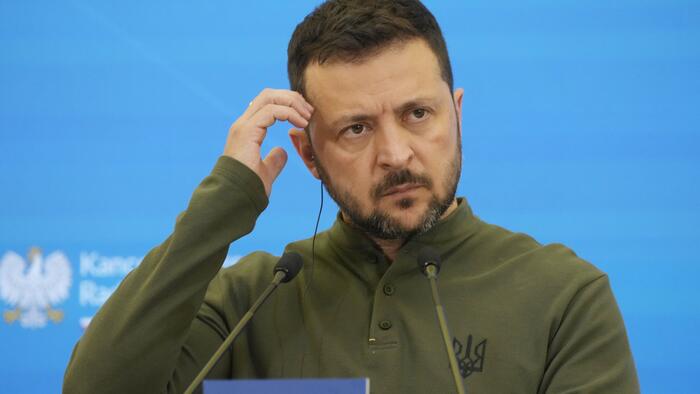Volodymyr Zelensky, the President of Ukraine, has openly criticized Poland for its hesitation in providing military assistance to Ukraine, particularly regarding crucial issues such as intercepting Russian missiles and supplying MiG fighter jets. Speaking during a meeting with community leaders from the Zakarpattia region, Zelensky’s remarks conveyed a strong message of frustration, highlighting that Poland and other NATO members seem to be retreating from decisiveness in the face of threats posed by Russia. This accusation of cowardice appears to deepen the rift between Ukraine and Poland, a relationship that, while historically supportive, shows signs of strain. Zelensky’s use of phrases like “scared” indicates a growing impatience with Poland’s inaction amid the ongoing war in Ukraine.
Zelensky’s statements specifically addressed Poland’s reluctance to take independent military actions, emphasizing that while Poland professes a supportive stance towards Ukraine, there remains a notable gap in operational support. He pointed out the critical need for stronger air defense capabilities to protect vital infrastructure in Ukraine, such as gas storage facilities, especially as winter approaches. Despite recognizing Poland’s supportive public sentiment, he lamented that they have not acted decisively when it comes to shooting down incoming Russian missiles, which poses a direct threat not just to Ukraine, but also to Polish territory. Zelensky’s appeal for Poland to engage in defensive measures reflects the urgency of the situation and the dependency on NATO solidarity to bolster Ukraine’s defensive posture.
The Ukrainian president outlined a conversation he had with NATO Secretary General Jens Stoltenberg, during which they discussed Poland’s role in intercepting missiles and the potential provision of military aircraft, specifically MiGs. He expressed disappointment over Poland’s failure to deliver these jets despite earlier assurances and official channels affirming that NATO could support a “police mission” in the region. Zelensky argued that Poland’s subsequent avoidance of action illustrates a fundamental unwillingness to take risks in a volatile security environment. The implication here is that Poland has sought alternative pretexts for inaction rather than fulfilling its commitments to Ukraine and the broader NATO alliance.
Tensions between Kyiv and Warsaw have escalated in recent months, revealing cracks in what was previously considered a robust partnership. President Andrzej Duda of Poland, despite being a supporter of Ukraine, acknowledged that mutual expectations may not be met. In an interview, he reflected on the potential perception that Ukraine might be taking Poland’s contributions for granted, indicating a sense of frustration. Duda’s comments suggest that even pro-Ukrainian sentiments within Polish leadership are tempered by the harsh realities of military supply challenges and the long-term implications of the ongoing conflict.
Duda highlighted the significance of the rapid military aid that Poland had provided to Ukraine, expressing pride in their contributions, even while recognizing that the relationship has not maintained the same level of unity and cooperation as before. The acknowledgment that “life is brutal” suggests an awareness of the realities faced by both nations in light of the ongoing war. This statement underscores the complexity of their relationship, where the necessity of continued support is mutually recognized, yet hindered by limitations, misunderstandings, and perhaps strategic caution.
As the war in Ukraine enters its third year, the dynamics between Kyiv and Warsaw are increasingly intricate. Zelensky’s comments, filled with urgency for military support, combined with Duda’s reflections on the need for mutual recognition of contributions, paint a picture of a partnership in flux. This strained relationship highlights not only the challenges within NATO unity faced by individual countries but also the broader implications of regional security in Eastern Europe. As both nations navigate their evolving positions, it remains crucial for them to address these underlying tensions and find a pathway to reaffirming their alliance in the face of persistent threats from Russia.

